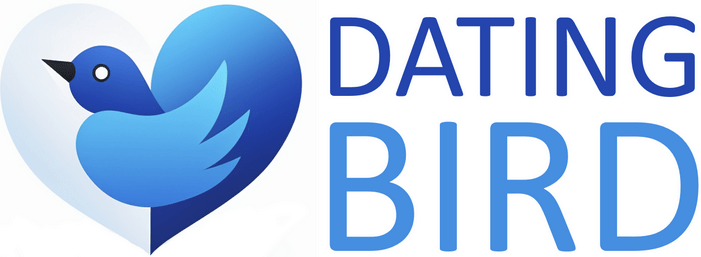Catfishing refers to the deceptive act of creating a false identity on online dating platforms, often with malicious intent. This social phenomenon, prevalent in the online dating world in the UK, involves misleading individuals into believing in the existence of a non-existent person.


A Comprehensive Look at Catfishing in Online-Dating
Stepping into the complex web of online dating, the term 'catfishing' takes on a significant role. Catfishing is an act of deception where individuals create fictitious online profiles to trick others into believing they are someone else, often for malicious purposes. The term, rooted in a 2010 documentary called 'Catfish', has since become a common term in the digital realm, especially within the sphere of online dating.
"The world of online dating is a playground for catfishers, where they can hide behind a screen and craft an appealing persona that may be far from their true identity."
The motives behind catfishing can vary greatly, from harmless pranks to more sinister intentions such as manipulation or financial fraud. The prevalence of catfishing in online dating can be attributed to the anonymity provided by these platforms, allowing individuals to hide their true identity and craft a persona that fits their desired narrative. With the surge in online dating, particularly in the UK, the occurrence of catfishing has also seen a stark increase.
In essence, catfishing is a deceptive practice that exploits the trust and vulnerability of unsuspecting individuals in the realm of online dating.
Real-Life Instances of Catfishing in Online-Dating
The real-life instances of catfishing in online dating are as diverse as they are surprising. In one case, a woman in the UK was duped into sending thousands of pounds to a man who claimed to be a soldier stationed overseas. In another, a man posed as a wealthy businessman to lure unsuspecting victims into fraudulent investment schemes. What's striking is that these individuals often go to great lengths to maintain their fabricated identities, crafting elaborate backstories and even providing counterfeit documents to back up their claims.
"The intricate web of lies spun by catfish can lead to devastating emotional and financial consequences for their victims."
However, it's important to note that not all instances of catfishing are malicious. Some individuals resort to catfishing as a means of exploring their identity or escaping the monotony of their everyday lives. Regardless of the motive, the impact of catfishing on its victims can be profound, underscoring the necessity for vigilance in the world of online dating.
What Really Matters in Catfishing? Or Does it Not?
In the complex realm of catfishing, certain elements stand out as crucial. Deception, being the cornerstone of catfishing, is implemented through the creation of false identities. This involves the use of fabricated details, such as name, age, gender, occupation, and often, an attractive profile picture. These details are carefully curated to appeal to the targeted individual. The success of catfishing hinges largely on the credibility of these fictitious profiles, which is often enhanced by creating a believable backstory and exhibiting consistent online behaviour.
"The effectiveness of a catfishing scheme is largely determined by the credibility of the fabricated profile and the manipulator's ability to sustain the deception."
Another critical factor is the manipulator's ability to engage the victim emotionally, leading them to overlook red flags. Furthermore, catfishing often involves long-term interactions, with the manipulator investing considerable time and effort in maintaining the deceit. The following points summarise the key aspects of catfishing:
- Use of deception through false identities
- Creation of credible and appealing profiles
- Establishment of emotional connections with victims
- Long-term interaction and sustained deceit.
These elements collectively contribute to the effectiveness of catfishing, making it a significant concern in the sphere of online dating.
Why is Catfishing So Significant in Online-Dating? Or is it Not?
The significance of catfishing within the online dating realm lies in its profound impact on individuals and the overall trust in digital platforms. It undermines the authenticity and transparency that online dating platforms strive to achieve. This deceptive practice not only exploits the emotional investment of the victim but also poses serious concerns about privacy and security. Catfishing is a form of identity theft, with the catfisher often using the stolen identity to commit fraud or cause emotional distress.
"Catfishing is a significant concern within online dating, not just because it exploits the emotional vulnerability of individuals, but also because it undermines the very essence of online dating - authenticity and transparency."
The sheer scale of this phenomenon is alarming. A study by the Pew Research Center found that nearly 54% of online daters believe that another user has seriously misrepresented themselves in their profile. This statistic underscores the prevalence and relevance of catfishing in the world of online dating.
The Challenges of Catfishing in Online-Dating
Navigating the online dating world can be like traversing a minefield due to the perilous practice of catfishing. Catfishing poses a significant challenge as it undermines the very foundation of online dating - trust. The catfisher, masked behind a fabricated online persona, manipulates the unsuspecting victim, causing emotional distress and potential financial harm.
Moreover, the anonymity provided by the internet emboldens the catfisher, making detection considerably difficult. Even with advanced verification methods, determined catfishers often find ways to circumvent these safeguards, rendering them less effective.
"The challenge of catfishing in online dating is not just about detecting the false profiles but also about addressing the emotional and psychological impact on the victims."
Furthermore, the legal framework addressing catfishing is often inadequate, leaving victims with little recourse. Thus, catfishing continues to be a significant hurdle in the evolution of a safe and reliable online dating environment.
The Contrast Between Catfishing and Regular Social Media Profiles
In the realm of online interactions, the contrast between catfishing and regular social media profiles can be rather stark. Catfishing, essentially, involves the creation of a completely false identity with the intent to deceive others, commonly observed in the British online-dating scene. A catfisher's profile is meticulously crafted with fabricated details to lure unsuspecting individuals. Regular social media profiles, on the other hand, typically represent the authentic identity of the user, with the aim to connect and share with friends, family, and acquaintances. These profiles usually reflect the user's actual interests, activities, and life events, unlike the fictional narratives spun by catfishers. It's important to note that not all misrepresentations on social media amount to catfishing. Minor embellishments or omissions are quite common, but they do not constitute the deliberate and extensive deceit that defines catfishing. Understanding this difference is crucial to navigate the digital landscape safely.
FAQ
Question: What is catfishing in the context of online dating?
Question: Why do people engage in catfishing in online dating?
Question: How can I identify a catfisher in online dating?
Question: What should I do if I suspect I'm being catfished?
Question: How does catfishing impact the victims?
Question: What's the difference between catfishing and having a pseudonymous profile on social media?
Question: Is catfishing illegal?
Question: How can I protect myself from catfishing in online dating?
Related articles
Articles with related questions
Written by:
 Liam
Liam is known for his balanced views on which dating apps are best for whom.
Liam has been married for 15 years. Why does he still test partner portals and online dating apps as an editor? Because he is constantly asked for advice among his friends and can obviously provide very good information about the advantages and disadvantages of each. He is always able to explain complex topics in an easy-to-understand manner and in plain language.
Liam
Liam is known for his balanced views on which dating apps are best for whom.
Liam has been married for 15 years. Why does he still test partner portals and online dating apps as an editor? Because he is constantly asked for advice among his friends and can obviously provide very good information about the advantages and disadvantages of each. He is always able to explain complex topics in an easy-to-understand manner and in plain language.
